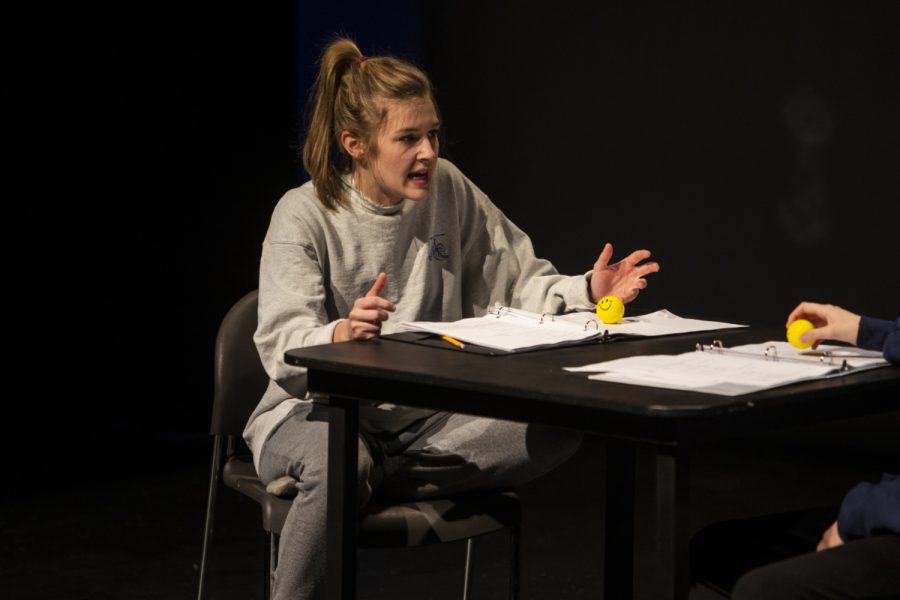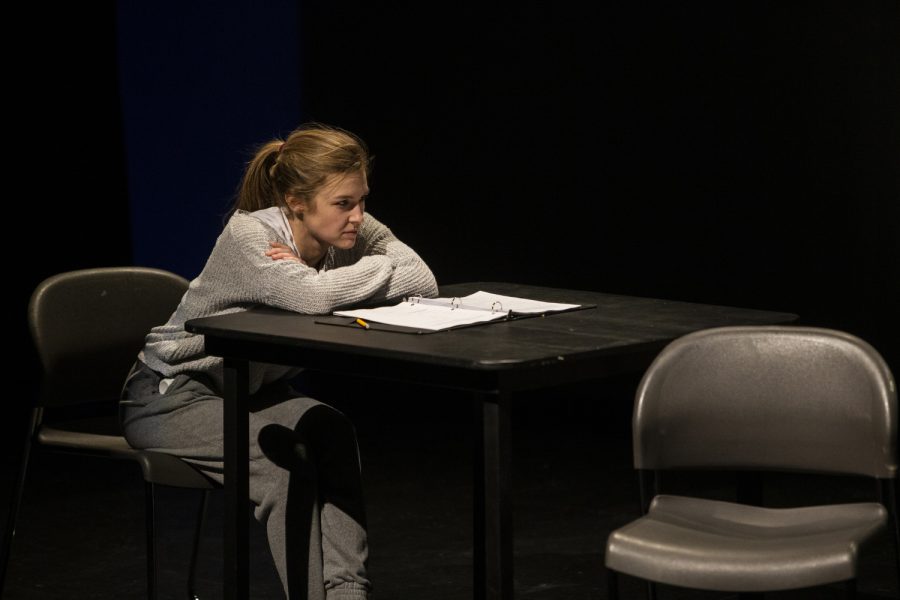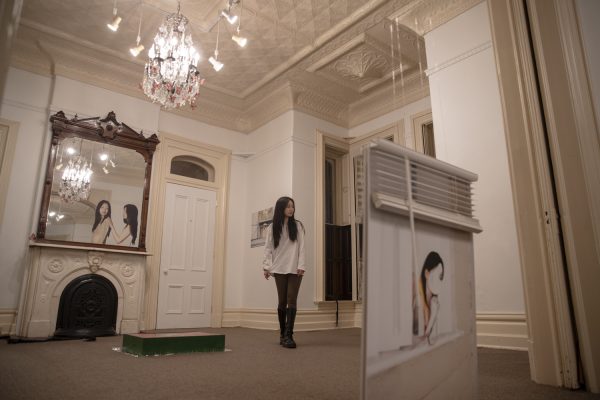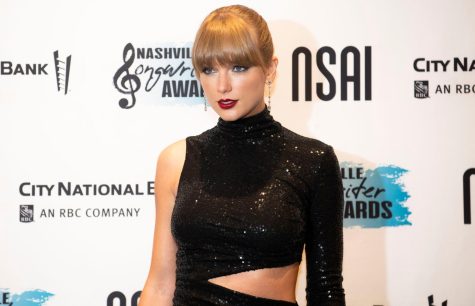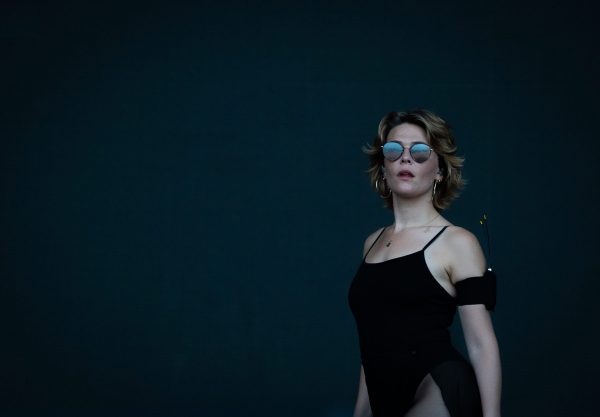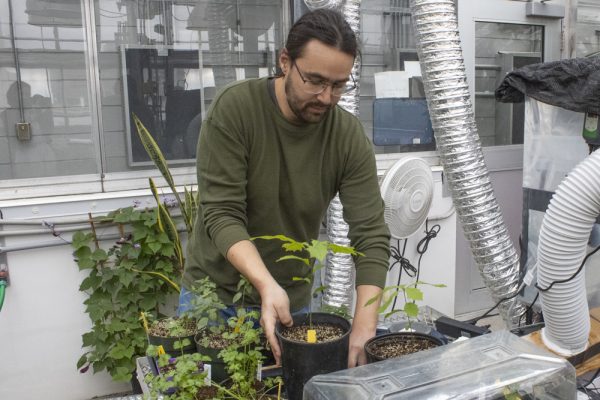UI playwright closes up UI Theatre’s fall season with a poignant piece on suicide
A “love letter” and “condemnation” of modern mental health care, ‘You Are Not Alone In The Void,’ wraps up UI Theatre’s fall season.
Kaya Schafer performs as Charlie during a dress rehearsal for You Are Not Alone In The Void on Dec. 11. You Are Not Alone In The Void, written and directed by Emmy Lane Palmersheim, opens in the Alan MacVey Theatre on December 13.
December 11, 2019
With the end of 2019 fall season, the University of Iowa’s Theatre Arts Department will light up one final time this year on the Alan MacVey stage. Presenting a somber and real portrayal of the United States’ hospital mental health care, You Are Not Alone In the Void hits the stage Dec. 13 and 14 at 8 p.m.
Written and directed by UI student Emmy Lane Palmersheim, who is nonbinary, the script itself is based around their own personal experiences with psychiatric in-patient care.
“It’s my love letter as well as my condemnation of psychiatric units,” Palmersheim said. “I have found them entirely helpful, but also there’s a lot of problems with the system that need changing.”
Palmersheim also mentioned that the piece, having been in the works for a little over a year, will be the playwright’s first full-length work to receive different staging elements, opening up the opportunity to grow their playwriting perspective.
For others who have played a part in the play’s process, the content matter itself has opened up conversations to spur growth.
“There’s been so much talking about our own experiences, how mental health is dealt with not only in this country, but locally here in Iowa City,” said Ben Sulzberger, a member of the production team. “Those conversations have been particularly illuminating for me.”
Lead actress Kaya Schafer has also taken this show as an opportunity to re-hone her skills as an actor of the stage.
“It’s my first step back into acting after quite a few years,” Schafer said. “It’s quite a powerful role to come into after having not been on a stage in quite some time.”
Schafer plays the role of Charlie, a girl who has recently attempted suicide. Now hospitalized, Charlie watches the world around her, listening to various characters she interacts with in the institution.
“Charlie is a big listener,” Schafer said. “In a lot of scenes, she’s listening to the other patients’ stories and the nurses’ stories, and I think she can find a lot of healing moments in listening to other peoples’ experiences.”
Charlie finds herself placed amongst three other patients and two nurses in the play, and alongside her two parents and sister, the show’s nine-member team intertwines a large number of character backgrounds — forced bonds of the situation and family.
Related: UI Theatre Arts’ Fall’s Eve explores trauma and healing on stage
“It’s a play about people who want to be understood, want to connect, want to get better,” Palmersheim said.
This want is not so unfamiliar to Schafer, who was diagnosed with an auto-immune disease that prevented her from walking for about six weeks. While not the exact same as the struggles Charlie faces in the play, Schafer said she has been able to use the feeling of lacking control as inspiration.
Palmersheim also said while there is a sense of darkness to the play in this needing of help, they want the audience to see the script as a hopeful story with sadness sprinkled in, rather than the other way around.
“One of the lines in the play that I feel is the centerpiece is ‘No matter how terrible you feel, or how miserable you, or how alone you feel, no one who loves you is better off with you not around,’” said Palmersheim.
Schafer said the story’s way of being told will really lend to its power in front of an audience.
“It continues to amaze me every time we read through it how sad of a story it is, but it just has such a hopeful ending,” Schafer said. “It takes you for a ride, but it holds your hand the whole time.”
Click through to view a photo slideshow:



